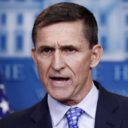Russia has rejected U.S. demands to hand over NSA whistleblower Edward Snowden, who leaked secrets pertaining to the government surveillance program. Russia’s foreign minister said Tuesday that American demands for the extradition of NSA leaker Edward Snowden were “ungrounded and unacceptable.”
Lavrov also said that the Russian government had played no role in Snowden’s effort to evade prosecution in the United States, and added that Snowden had not crossed into Russian territory, despite reports to the contrary.
Snowden, who left Hong Kong for Russia over the weekend, had been expected to board a Cuba-bound flight from Moscow on Monday morning, but was nowhere to be found on in his seat that was booked on that flight.
A Justice Department official, though, told Fox News that the department knows his location, without providing further detail. White House Press Secretary Jay Carney later said he is presumed to be in Russia. Jay Carney said:
We do expect the Russian government to look at all the options available … to expel Mr. Snowden back to the United States.
Carney was less careful in his words about China.
The Chinese have emphasized the importance of building mutual trust, and we think that they have dealt that effort a serious setback. …This was a deliberate choice by the government to release a fugitive despite a valid arrest warrant, and that decision unquestionably has a negative impact on the U.S.-China relationship.
Yesterday, Carney did not provide other details about the status of possible negotiations. Later in the day, President Obama commented briefly on the case, saying the U.S. is working with other countries to ensure the rule of law is followed.
Julian Assange, the WikiLeaks founder whose team is assisting Snowden, separately claimed on a conference call to know Snowden’s location, but would only say that he is “healthy and safe.” Assange said:
He’s in a safe place. We cannot go into further detail.
Assange and his colleagues accused the U.S. of trying to bully other nations into turning him over, claiming Snowden can potentially claim refugee status. Though the U.S. revoked Snowden’s passport, Assange revealed that Snowden was supplied with a refugee document when he left Hong Kong by the Ecuadorian government, allowing him to travel about despite the warrant that should be enforced via Interpol.
Assange said Snowden has applied for asylum in Ecuador, Iceland and possibly other countries. Meanwhile, Ecuador’s foreign minister said Monday that the country was considering Snowden’s request.
However, the Justice Department official said a revoked passport should have stopped anyone in that circumstance from boarding a plane. The U.S. government has been pressuring countries not to provide him passage.
Sen. Lindsey Graham, R-S.C., wrote a terse letter to Russian Ambassador Sergey Kislyak saying that, if Snowden is still in Russia, Moscow should turn him over. It read:
The Snowden case is an important test of the ‘reset’ in relations between our two countries. Mr. Snowden’s own statements have made clear his guilt. If our two nations are to have a constructive relationship moving forward, Russian cooperation in this matter is essential. If Mr. Snowden is still on Russian territory, I urge your government to apprehend him and turn him over the United States authorities immediately.
Anti-secrecy group WikiLeaks said that Snowden was ultimately bound for Ecuador “via a safe route for the purposes of asylum, and is being escorted by diplomats and legal advisers from WikiLeaks.”
Ecuador’s Foreign Minister Ricardo Patino spoke to reporters while he was in Vietnam on Monday. He said that his country is analyzing Snowden’s request. He was critical of the U.S., saying it’s unlikely Snowden would receive a fair trial. He had said prior that the asylum request “has to do with freedom of expression and with the security of citizens around the world.”
The White House responded to the events late Sunday, saying the U.S. hopes Russia will look at “all options available” to extradite Snowden back to the U.S. to face charges before he leaves for South America.
The statement cites the two countries’ recent cooperation in the aftermath of the Boston Marathon bombings and the U.S.’ extradition of criminals back to Russia as factors the White House hopes will influence Russia’s decision.
The U.S. has been left with limited options as Snowden’s itinerary took him on a tour of what many see as anti-American capitals. Ecuador in particular has rejected the United States’ previous efforts at cooperation. A State Department official told Fox News:
The United States has been in touch via diplomatic and law enforcement channels with countries in the Western Hemisphere through which Snowden might transit or that could serve as final destinations. The U.S. is advising these governments that Snowden is wanted on felony charges, and as such should not be allowed to proceed in any further international travel, other than is necessary to return him to the United States.
Snowden helped The Guardian and The Washington Post disclose U.S. surveillance programs that collects vast amounts of phone records and online data in the name of foreign intelligence, but often sweeping up information on American citizens. Officials have the ability to collect phone and Internet information broadly but need a warrant to examine specific cases where they believe terrorism is involved.
Snowden has been in hiding for several weeks in Hong Kong after publicly coming forward. Hong Kong is, of course, a former British colony with a high degree of autonomy from mainland China. The United States formally sought Snowden’s extradition from Hong Kong but they were refused. Hong Kong officials said the U.S. request did not fully comply with their laws.
The Justice Department rejected that claim, saying its request met all of the requirements of the extradition treaty between the U.S. and Hong Kong.
During conversations last week, including a phone call Wednesday between Attorney General Eric Holder and Hong Kong Secretary for Justice Rimsky Yuen, Hong Kong officials never raised any issues regarding sufficiency of the U.S. request, a Justice spokesperson said.
A State Department official said the United States was in touch through diplomatic and law enforcement channels with countries that Snowden could travel through or to, reminding them that Snowden is wanted on criminal charges and reiterating Washington’s position that Snowden should only be permitted to travel back to the U.S.
The Justice Department said it would “pursue relevant law enforcement cooperation with other countries where Mr. Snowden may be attempting to travel.”
Upon his arrival, Snowden did not leave Moscow’s Sheremetyevo Airport. One explanation could be that he wasn’t allowed; since his passport has been revoked, and special permission from Russian authorities would have been needed.
“It’s almost hopeless unless we find some ways to lean on them,” said Rep. Peter King, R-N.Y.
U.S. lawmakers scoffed. “The freedom trail is not exactly China-Russia-Cuba-Venezuela, so I hope we’ll chase him to the ends of the earth, bring him to justice and let the Russians know there’ll be consequences if they harbor this guy,” said Graham.
With each suspected flight, efforts to secure Snowden’s return to the United States appeared more complicated if not impossible. The United States does not have an extradition treaty with Russia, but does with Cuba, Venezuela and Ecuador. Even with an extradition agreement though, any country could give Snowden a political exemption.
The likelihood that any of these countries would stop Snowden from traveling on to Ecuador seemed unlikely. While diplomatic tensions have thawed in recent years, Cuba and the United States are hardly allies after a half century of distrust.
Venezuela, too, could prove difficult. Former President Hugo Chavez was a sworn enemy of the United States and his successor, Nicolas Maduro, earlier this year called Obama “grand chief of devils.” The two countries do not exchange ambassadors.
U.S. pressure on Caracas also might be problematic given its energy exports. The U.S. Energy Information Agency reports Venezuela sent the United States 900,000 barrels of crude oil each day in 2012, making it the fourth-largest foreign source of U.S. oil.







